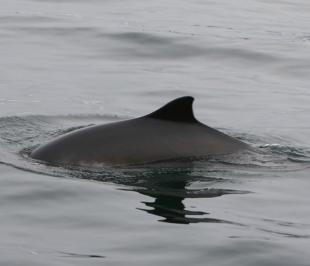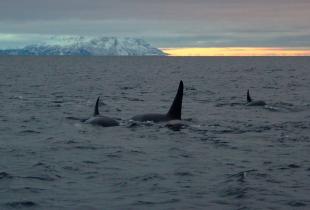Location:
Hudson Beare, Classroom 4
Date:
Friday, November 20, 2015 - 13:00 to 14:00
Speaker: Robert Batty
Title: Are Marine Animals at Risk of Collision with Tidal Stream Turbines?
Abstract:
The potential for injurious or fatal collisions between marine animals and tidal stream turbines are among the key areas of environmental uncertainty to consider for this form of renewable energy extraction. Is it possible to quantify this risk and assess the impact on animal populations and their welfare? Whilst SNH’s guidance on assessing potential collision risk between tidal turbines and marine wildlife has been released for consultation (until 10th Dec.), this is a good time to review and discuss this topic.
Collision risks between marine mammals and tidal stream turbines can be considered as a function of the probabilities of evasion (short range) and avoidance (long range) and the encounter rate between animals and turbine blades. A full collision model (with estimates of collision rates is not yet possible because too little is known about the actual responses of animals to the presence of turbines. In particular, movements at long-range, out of the path that would lead to collision (“avoidance”) or dodging manoeuvres at close range (“evasion”).
Encounter rate (assuming no behavioural response to a turbine) depends on local animal abundance, other aspects of animal behaviour as well as characteristics of the turbine and current. In order to reveal to which aspects of animal behaviour (depth distribution, swimming speed and orientation, etc.) encounter rate is most sensitive we refined and used an existing encounter rate model and have developed a model to predict the time allocation of depth distribution.
Bio:
Bob Batty is an Honorary Research Fellow at the Scottish Association for Marine Science who, before retirement, conducted research on the behavioural ecology of marine animals. His research interests have focused on the predator-prey interactions of marine animals and their locomotion. His honours thesis was on the recovery of fish from exhaustive exercise (as a result of escape behaviour) and his PhD was on the locomotion of fish larvae. Later work included feeding behaviour and predator evasion, spatial and temporal distribution, sensory physiology and the development of sense organs. He has worked on animals ranging in size from larval fish to killer whales. More recently studies of the mechanisms underpinning escape from predator attack have been applied to try to understand the risks of collision between marine animals and marine renewable energy generating devices.





